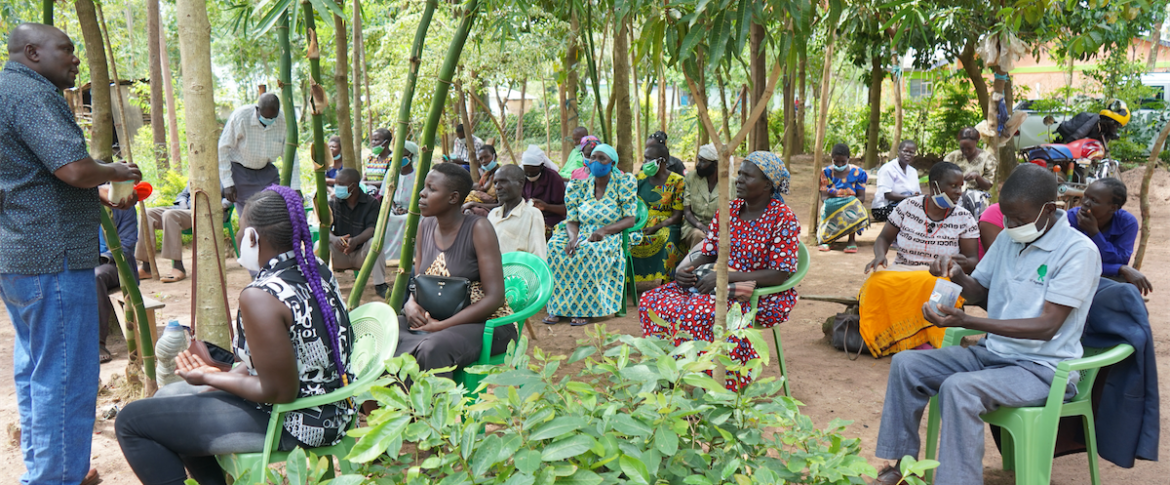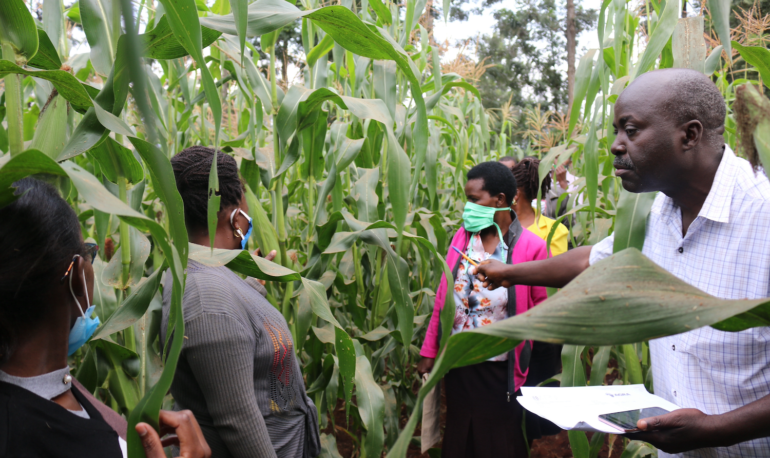
Mitigating Covid-19 Impact on Food Security in Kenya (ky-sh-01)
Theme: Soil Health for Improved Livelihoods
Project Lead

African Plant Nutrition Institute
Supported by

USAID through AGRA
Implementing Partners

Kenya Agricultural & Livestock Research Organization (KALRO)

Target Cropping Systems
Maize, Beans, Greengrams, and a range of vegetable crops
Target Countries
Kenya
Other Targets
14,000 farmers in Makueni, Siaya, Bungoma and Kakamega Counties
APNI recently launched its new COVID-19 Mitigation Project for Kenya with financial support from USAID through AGRA, a project implementing partner. The project also emphasizes and encourages partnership with county governments and the entire Partnership for Inclusive Agricultural Transformation in Africa (PIATA).
Short Description
This project seeks to mitigate the effect of Covid-19 on food and nutritional security of vulnerable farming households in Makueni, Siaya, Bungoma and Kakamega. To achieve this the project will build capacity and support 14,000 farmers in these counties to produce higher yields of maize, legumes and vegetable crops.
Covid-19 has negatively impacted on food systems and livelihoods of over 40% of Kenya smallholder households. Since March 2020 when the first Covid-19 case was detected, followed by a surge of infection rates in Kenya, the containment measures like lockdown, have reduced off farm employment opportunities, access to extension services and access to agricultural inputs like seeds, fertilizers and pesticides. This coupled with the widespread locust invasion of croplands and climate change increased the number of food insecure households in most of the Kenya rural agricultural counties. Such limited crop yields resulted in high food prices in the market and majority of these poor households could not afford to purchase sufficient quality food from the markets. Supporting farmers with production knowledge especially through digital platforms which are non-dependent on direct interaction with extension personnel, input and access to digital extension messages
This project seeks to mitigate the effect of Covid-19 on food and nutritional security of vulnerable farming households in Makueni, Siaya, Bungoma and Kakamega. To achieve this the project will build capacity and support 14,000 farmers in these counties to produce higher yields of maize, legumes and vegetable crops. The project is funded by USAID through AGRA.
- Increase resilience of smallholder farmers to COVID-19 disruptions by facilitating their access to farm inputs, good agronomic practices and digital extension information
- Improve food and nutrition security amongst the vulnerable communities through promotion of integration of legumes and vegetables into the cropping systems
- To use COVID-19 disruption case to study the effect of disruption on food security and identify the most important interventions for building resilience amongst the vulnerable farmers
Outputs

